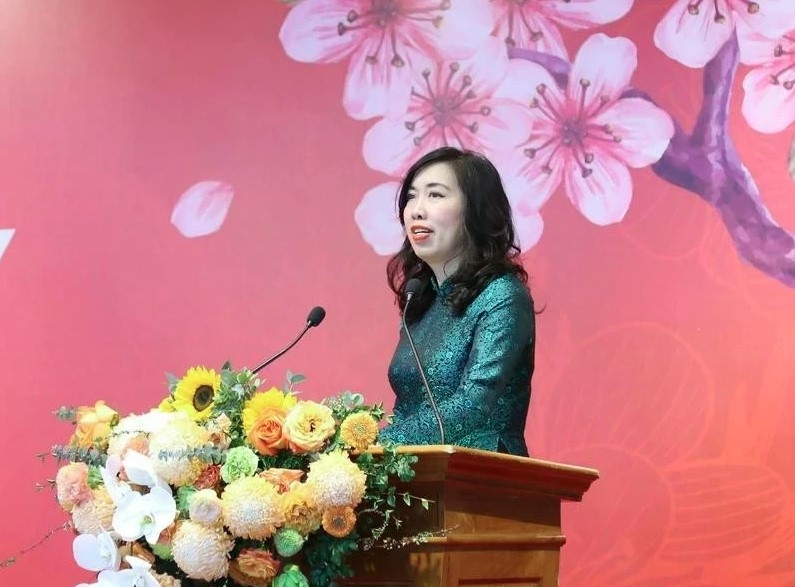Homeland Spring programme 2025: OVs look towards nation’s new era
The “Xuan Que huong” (Homeland Spring) programme 2025 will take place in Hanoi from January 18 to 20 with diverse events and new features, according to Deputy Minister of Foreign Affairs Le Thi Thu Hang, who is also Chairwoman of the ministry's State Committee for Overseas Vietnamese Affairs.

In an interview granted to the Vietnam News Agency, Hang said that this year’s programme is an important cultural and political event that marks the beginning of a pivotal year for the country.
Themed Vietnam - Rising in a New Era, it conveys a message of the nation's aspiration for strong development, with the people both at home and abroad united and determined to lead the country to a new stage – the era of the nation's rise.
It also serves as an opportunity to honour significant contributions by the overseas Vietnamese (OV) community to the cause of national construction and safeguarding, encouraging them to continue staying connected, united, and dedicated to the homeland, stated Hang.
A special feature of this year’s programme is the reforms and creativity in both content and format. Within its framework, OVs will have an chance to engage in activities to connect them with localities such as Hanoi and Hung Yen province, and to contribute ideas and share experiences in promoting socio-economic development.
These connections not only strengthen the bond between the OV community and the homeland but also affirm their important role in the overall development of Vietnam, Hang said.
Notably, the participation of and New Year's greetings from State President Luong Cuong will be key highlights of the event, reflecting the profound interest and attention from Party and State leaders towards the OV community, she went on.
In addition, the programme will include many other meaningful activities such as offering incense at the Kinh Thien Palace, releasing carps into the pond at President Ho Chi Minh’s memorial site, paying tribute to the late leader at his mausoleum, and laying wreaths at the Monument to Heroes and Martyrs on Bac Son street in the capital city. These activities not only express gratitude to the ancestors who contributed to the country but also inspire a sense of national pride and the spirit of returning to the roots in every Vietnamese.
Regarding the OV-related work last year, the official said that the year 2024 witnessed an increase in activities that strengthened the ties between the OV community and the homeland. Annual events such as the Homeland Spring, OVs' visits to Truong Sa (Spratly), the Vietnam summer camp, as well as Vietnamese language training courses for OV teachers attracted the participation of Vietnamese people around the world.
Great resources from the OV community have been mobilised strongly, contributing to the country's economic development. As of 2024, OVs had invested in 421 FDI projects with a total registered capital of US$1.72 billion. The remittances to Vietnam last year were estimated at US$16 billion, serving as a crucial resource for the country's economic growth, especially in the context of global economic challenges and difficulties in the countries where they reside in.
Notably, the 4th World Conference of OVs, combined with a forum for OV intellectuals and experts, gathered 500 delegates from 42 countries and territories alongside 200 representatives from Vietnamese ministries, agencies, and organisations. More than 70 presentations by OV experts addressed topics such as semiconductors, artificial intelligence, supply chains, green and circular economies, culture, and Vietnamese language conservation.
Besides, Hang also highlighted the timely implementation of protection and support measures for OV communities in the areas hit by conflicts, natural disasters, and fires.
As for tasks for this year, the deputy minister held that 2025 marks an important phase in the country's development journey. Therefore, mobilising resources from the OV community is considered a strategic and focal task, playing a vital role in the nation's socio-economic development.
The mobilisation of resources from the community is to support them in stabilising their lives, integrating well into their host countries, and developing sustainably.
In addition, creating a favourable policy environment is also a key factor, Hang said, affirming that the State will continue to perfect policies and laws to encourage the OV community to invest and do business in, and contribute more to the homeland.


